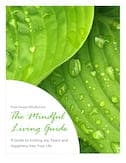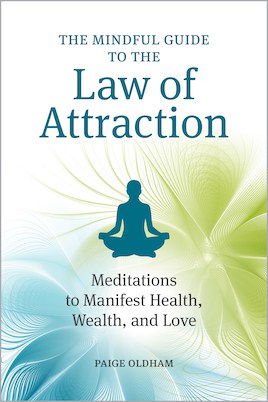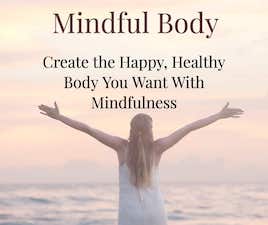We’re all programmed to feel fear. It’s what keeps us safe. It’s that ‘fight or flight’ instinct that was supposed to protect us from marauding carnivores thousands of years ago. But our environment has changed over the last few thousand years such that, for most, marauding carnivores are no longer an issue.
Today, those occasional carnivores have been replaced with what seem to be constant sources of fear: bosses, parents, partners, and teachers to please; deadlines to meet; life decisions to make; fear of success, failure, change…
Our minds and bodies weren’t designed to handle constant fear.
Labels Are Powerful
Society has relabeled many fears as ‘stress’ to make them socially acceptable. You’re not human if you’re not feeling stress about something, right? Think of all the times you use the word ‘stress’ or ‘stressed.’ How would the same thoughts and phrases sound if you replaced ‘stress’ with ‘fear?’
“I’m so stressed out!” becomes “I’m so fearful of…!”
“She makes me stressed.” becomes “She makes me afraid of [not making her happy.]”
Funny how that rephrasing unlocks the door to releasing the stress. Feeling stressed out is a fuzzy feeling that you can’t put your finger on or do anything about (other than some deep breathing). Labeling what you’re afraid of gives you something you can work with, something you can focus on and change.
That rephrasing also changes the source of the stress/fear from something outside of you that you can’t control to something within you that you have complete control over.
If your work stresses you out, rather than living day to day with that belief, you can change it by focusing on your fears. Are you afraid of your boss? Why? How can you change your interactions with or thoughts about your boss to lessen that fear? Are you afraid of missing deadlines? Can you plan ahead, start projects sooner, say ‘no’ more often to create time for your important projects, stop trying to be a perfectionist? All of these actions are in your power.
Yes, some jobs can be more demanding than others which tends to increase stress levels. If the demands are too much for you, ask yourself: Is this job in alignment with my values? Does it support my ideal lifestyle? Is it worth the life energy I’m expending on it? Is it worth my precious time (which I’ll never get back)?
If the stress/fear you’re currently experiencing is the trade-off for a higher vision you have for your life, focus on your Why, your vision, rather than the stress to reduce the negative effects the stress may have on your body and psyche.
Fears can be managed if they can be labeled and called into the light of day. That scary monster in the closet wasn’t so scary when you shined a light on it and realized it was just a pile of dirty laundry.
Fear of Breaking Unwritten Rules
Fears of adulthood are the same. Often, fears are related to unwritten ‘rules’ that you believe to be true.
If you’re afraid of choosing the wrong career, it’s probably because you believe the ‘rule’ society perpetuates that says that once you choose, you’re stuck with that career the rest of your life, and you’re a failure if you change. While you may get flak from friends and family who hold that belief, you’re free to change your choice of career any time you like.
If you’re afraid of taking extended time away from work for a sabbatical to ‘find yourself,’ travel or see what else life has to offer because you think it will destroy your career, you’re thinking that the gap on your resume will look bad. Times have changed dramatically in this area. Many companies look for people with broad and diverse backgrounds who can draw from a multitude of seemingly non-related experiences in their careers. Twenty years ago, my two year ‘sabbatical’ had no impact on my ability to get back into the corporate world. Some interviewers were actually a little jealous.
If you’re afraid of following your heart, gut or your intuition because you think it might lead you astray, you’re thinking that your head is smarter than your heart or gut at leading you in the right direction. That’s simply not true – as long you regain your inherent ability to connect with and listen to the subtle but powerful (and right for you) messages that your gut and heart send you all the time.
Focusing on your fear can help you to see if the scary monster is simply a misguided belief that you need to change in your own mind.
Simple Steps
The next time you feel your heart racing and your body tensing, follow these steps to conquer your fears and short circuit the mounting stress:
- Stop, close your eyes and take three deep breaths.
- Focus on your heart, gut and any other parts of your body where you’re feeling constricted. Breathe into those places imagining that you’re giving those areas the extra oxygen they need.
- Ask yourself, your heart or your gut what it’s afraid of. If you don’t get a clear answer, ask ‘yes’ or ‘no’ questions to narrow things down. ‘Yes’ or positive responses from your body feel relaxed and open. ‘No’ responses feel tight and heavy, like the fearful feelings you’re already experiencing.
- Write out the fear in as much detail as you can.
- Once you’ve identified the source of the fear, ask what you can do to lessen the fear. Are there actions you can take or beliefs you can change that will allow you to feel better? You can’t change other people. You can change your perceptions of and responses to them.
- Write down all of your ideas.
- Choose one idea that you can act on immediately and do it. Act on the next idea as soon as you can, repeating the process until you’ve taken action on all of your ideas (as long as they don’t involve hurting others).
- Repeat steps 1 and 2 and notice how much your fear and stress have subsided. Repeat the whole process until your fear/stress is at a manageable level.
You don’t have to live under a dark cloud of stress. Don’t let stress rob you of your health and vibrancy. You have the power to make these changes in any moment. Why not now, in the present moment?
Create the life you want: Combine the law of attraction with mindfulness
The law of attraction suggests that our positive or negative thoughts bring about positive or negative experiences. My latest book, The Mindful Guide to Law of Attraction, pairs that belief with the powerful practices of mindfulness. Through intentional breathing, writing, and engaging, you’ll hone a method for manifesting health, wealth, and love―the elements of happiness.
Let the law of attraction work for you by adopting its basic steps of identifying and visualizing the things you desire. Then use 45 practical meditation techniques included in the book to achieve awareness. By concentrating your positive energy on obtaining your wants, you’ll give yourself permission to receive them.
To your happiness! ~Paige

You can find this book at Amazon, Barnes & Noble, Books-A-Million, and Indigo.







 The Mindful Living Guide
The Mindful Living Guide




Nowadays, many people experience an inevitable and undesirable stress, which is not only unpleasant, but can also affect their health. If you are one of the most stressful people, read the facts to better understand your stress and give advice to overcome it. http://bit.ly/2P9IvQa
Stress can powerfully cripple us if we don’t manage it. Mindfulness is a powerful tool to help in the process of stress management.
Hi Paige, thank you for this wonderful post – I really like how you mapped out the steps, very easy to follow.
I find, as you suggested, writing things out really does help clarify my own thoughts, which helps me gain a better understanding of myself. Another strategy that I’ve found useful is to speak to those who have been in my shoes, someone who’s shared a similar fear and overcame it – we can learn a lot from these conversations.
As for the fear of “choosing the wrong career”, I recently wrote a post on the topic of choosing a generalist vs specialist career – would it be okay to share with you and your readers a link to that post?
Your link is shared, Seneca. Whether through writing or speaking with others who understand, it’s always helpful to get our thoughts out of our head (and those circular thought pattersn) and into the world in order to move forward.
Great piece of information over here. As in my opinion,Adequate Sleep is one of the best ways to reduce stress. Not getting enough sleep causes problems related to stress. so it is important to get 7 to 9 hours of sleep per day.
I completely agree with you, Sam. Adequate sleep is critical to health on every level and helps immensely with one’s ability to handle stress.
I love the rephrasing of stress and by doing so, turning it into something that can actively be worked on! Your process will help people focus on something they can actually build action steps around. Your article is fantastic because it is extremely important for people to identify and then actively deal with anything in their lives that are preventing them from living their higher selves.
Thank you James! Rephrasing or reframing can quickly and easily turn a seemingly impossible situation into something manageable. It’s all in how you choose to see it.
Love your approach to fear Paige! Thank you for sharing.
xoxo, Z~
Thank you Zeenat!
This is a fascinating approach to fear, Paige. I never thought of it this way before. I like the simple steps you offer to get to the bottom of our fears?
Thanks so much Sandra! I came to the revelation that stress = worry = fear when I thought I didn’t worry about things (when those close to me did). When I asked myself what stressed me out, I found that it was a worry or fear about an unlikely future event. That gave me the opportunity to shine a light on that fear so I could realize that there was actually nothing to fear.
I’ve found that when I play out a fear in my mind to the worst possible scenario, the end isn’t so bad. It’s usually something that I’ve already experienced in my life, and I’ve come out okay in the end. Fears tend to cycle in our minds and wreak havoc until we focus on them, give them a little attention and let them play out. This is where journaling can be powerful. Writing out what’s spinning in our heads allows the fears to come to light and then dissipate.
Love your simple yet effective steps to short circuit the feelings that can so easily stop us in our tracks Paige. It’s so interesting that stress is more a more socially acceptable term than fear…yet as you say so eloquently it’s just another name for it. I do think bringing it into the open as you suggest most definitely diminishes it’s power. As with most things that have a light shone on them. 🙂
Thanks so much Elle! Yes, while we may fear the monsters in the dark, fear fears the monsters in the light because shining a light on a fear almost always dissolves it.